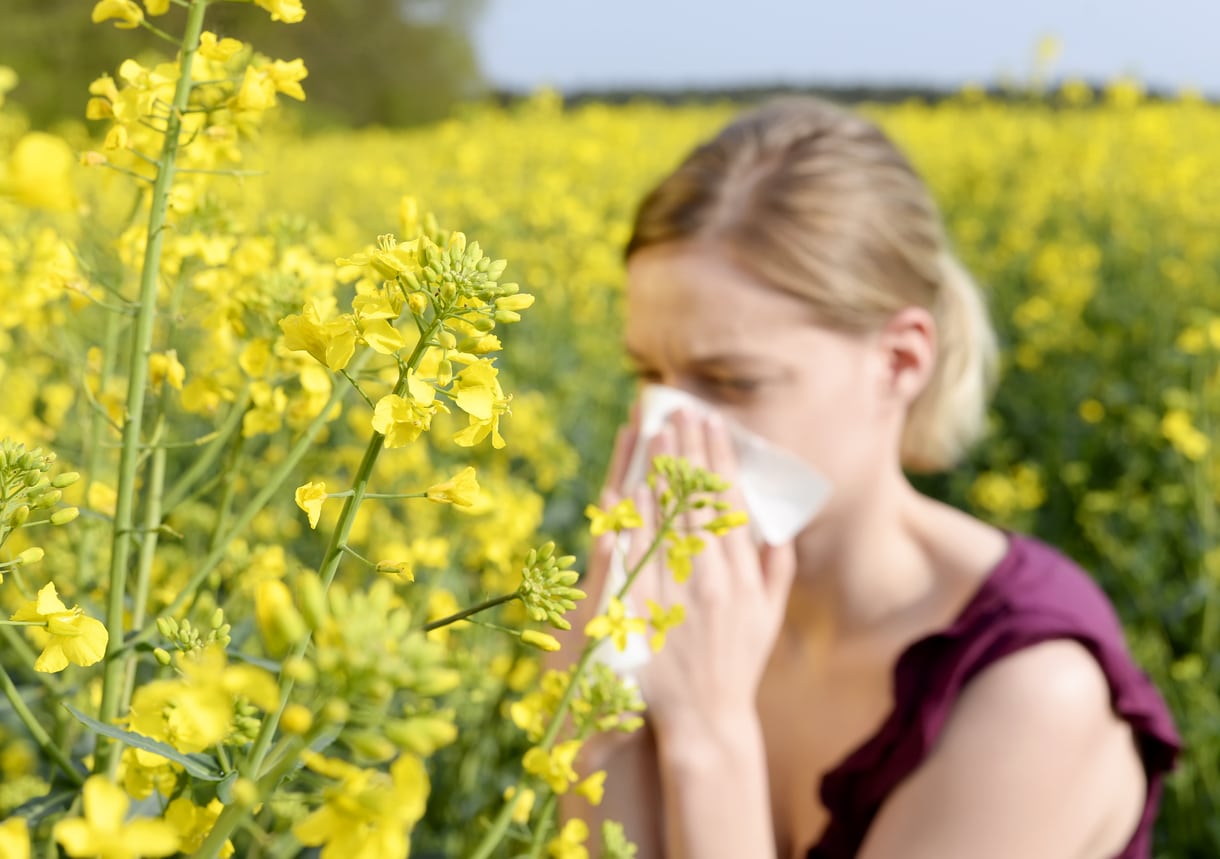Allergy season is the time between spring and fall when trees, grasses and weeds release pollen. Recent rising temperatures are causing spring to begin earlier and fall to extend longer, leading to a lengthier allergy season.
How Much Longer Is Allergy Season?

The Asthma and Allergy Foundation of America (AAFA) released its 2025 Allergy Capitals Report, which examines allergy seasons across the United States and the effects of climate change on pollen levels.
The report notes that pollen season now begins about 20 days earlier and lasts 10 days longer than it did 30 years ago. Using a pollen emission model combined with future climate data, projections indicate that by the end of the century, pollen season could begin 10 to 40 days earlier and extend five to 15 days longer.
Do Rising Temperatures Affect Pollen Count?
The report also found that tree pollen counts and the strength of allergic reactions to the pollen may be higher than in the past. Researchers found that an increase in carbon dioxide gas is the likely cause of greater pollen production.
What Do Changing Allergy Seasons Mean for Minnesotans?
The changing seasons mean allergies may be more severe and last longer than in previous years. However, the report did hold some good news for our region. The list places Minneapolis 90th on the overall rankings of allergies in U.S. cities, with one being worst and 100 being best. Midwest, Eastern and Southern states showed the greatest pollen count and medication use.
How Can I Manage My Allergies?
Scheduling an allergy test is an excellent first step in managing your symptoms. We can identify the specific allergens you’re sensitive to and help you implement avoidance strategies, including but not limited to the following:
- Planning outdoor activities during low-pollen days
- Wearing sunglasses to protect your eyes when outside
- Keeping your windows and doors shut or installing allergy screens
- Washing bedding weekly
- Using HEPA air filters in the home
We can also recommend several medical interventions to minimize symptoms:
- Medication. Antihistamines, decongestants, nasal corticosteroids, eye drops and mast cell inhibitors provide short-term relief for daily symptoms.
- Allergy shots (subcutaneous immunotherapy). Allergy shots are a long-term treatment for seasonal, indoor and insect sting allergies. They work by gradually introducing the allergen to help your immune system build up a tolerance.
We can help you through this allergy season and the next. Call us at Midwest Allergy & Asthma to explore personalized treatment options that help you feel your best.
